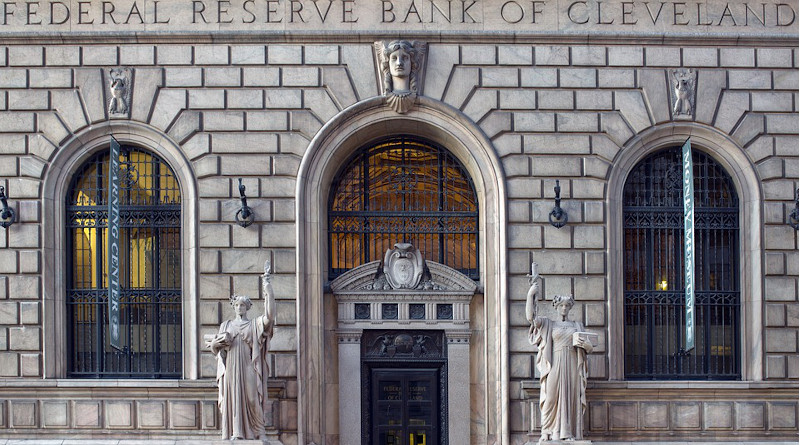A Quick Note On The Federal Reserve Board – OpEd
By Dean Baker
When Pennsylvania Senator Pat Toomey, at the last minute, insisted on adding language to the pandemic rescue package, stripping the Fed of emergency powers, I was among those screaming “No Deal.” I have not always been a huge fan of the Fed, but I felt this plan was a deliberate effort to sabotage an effective response to any financial/economic crises that may arise in a Biden administration.
Just for background, we know that the Republicans are perfectly fine with sabotaging the economy in order to hurt the political prospects of a Democrat in the White House. This is exactly what they did under President Obama, as they demanded recovery killing austerity as they feigned concern about deficits. Republican Senate Leader Mitch McConnell openly said that his job was to make Obama a one-term president.
With this recent history, there can be little doubt that Republicans in Congress will do everything they can to sabotage the economy under President Biden. In this context, it is especially important that the Fed have the ability to take the steps necessary to counteract crises that could arise.
The specific power at issue with Senator Toomey’s proposal was whether the Fed could establish special lending facilities to help a market facing a crisis. This could be the situation if, for example, there is a sudden fear of widespread bankruptcies in the municipal bond market, if a major city defaults on its debt.
Without emergency powers, the only thing the Fed could do is to push down Treasury bond rates (they are already very low) and buy some short-term municipal debt. It could not engage in purchases of long-term debt and commit to support the market. Many, perhaps most, Republicans in Congress would then be celebrating as “Democrat” cities lost their ability to borrow and suddenly were unable to pay their bills.
Fed critics (I have often been one myself), have argued that we should not view the Fed as an ally of progressives. It certainly has a very mixed record, so there are plenty of grounds for suspicion. Under Paul Volcker and Alan Greenspan, the Fed repeatedly raised interest rates in an explicit effort to weaken workers’ bargaining power and thereby reduce wages. This was done ostensibly to prevent inflation.
More recently, the Fed, beginning under Janet Yellen and continuing under Jerome Powell, the current chair, has acknowledged the role of monetary policy in inequality and especially racial inequality. Chair Powell has committed to keeping interest rates low until we are seeing a full employment economy that is creating serious inflationary pressures
This change in approach stems at least in part from the Fed Up Campaign, organized by the Center for Popular Democracy. (Ady Barkan was lead organizer in getting this campaign going.) This group brought labor and community organizers together to press the Fed for more pro-worker policies. (I was one of the economists who worked with Fed Up.) Chair Yellen and other members of the Fed’s leadership took the effort seriously and listened to the arguments. This was a big victory.
As far as the Fed’s conduct in the pandemic recession, I would mostly be supportive. They lowered interest rates as much as possible and acted to stabilize markets. This did help businesses and the stock market, but it also led to a housing boom that created hundreds of thousands of jobs. In addition, lower interest rates allowed millions of middle class homeowners refinance, putting thousands of dollars in interest savings in their pocket every year going forward. I have a hard time seeing the world being in a better place if the Fed had sat on its hands.
By contrast, I was one of few economists to criticize the bailouts in the Great Recession. The banks and financial institutions were in a crisis of their own creation, they had made hundreds of billions of dollars of bad loans due to their own greed and stupidity. Being a good capitalist, I thought it was important to let these companies enjoy the fruits of their labor. (We also would have gotten instant financial reform, as the financial sector would have been quickly downsized, eliminating an enormous source of economic waste.)
The Fed was 100 percent complicit in covering the tracks of the industry, including pushing end of the world stories to force Congress to approve the TARP. By far the best argument for the TARP was that the commercial paper market was shutting down. This meant that even healthy non-financial companies, like Verizon and Boeing, could not get the money they needed to meet their payroll and other regular bills. This really would have been an economic catastrophe.
However, the dirty little secret here was that the Fed always had the power to sustain the commercial paper market on its own, without any assist from Congress. We found this out the weekend after the TARP passed when the Fed announced the creation of a commercial paper lending facility.
The long and short, is yes, we absolutely have to view the Fed with suspicion, but it can play a positive role, and has so far in this crisis. It would be foolish to let Republicans take away its ability to do so in a future crisis.
This article first ran on Dean Baker’s Beat the Press blog.

